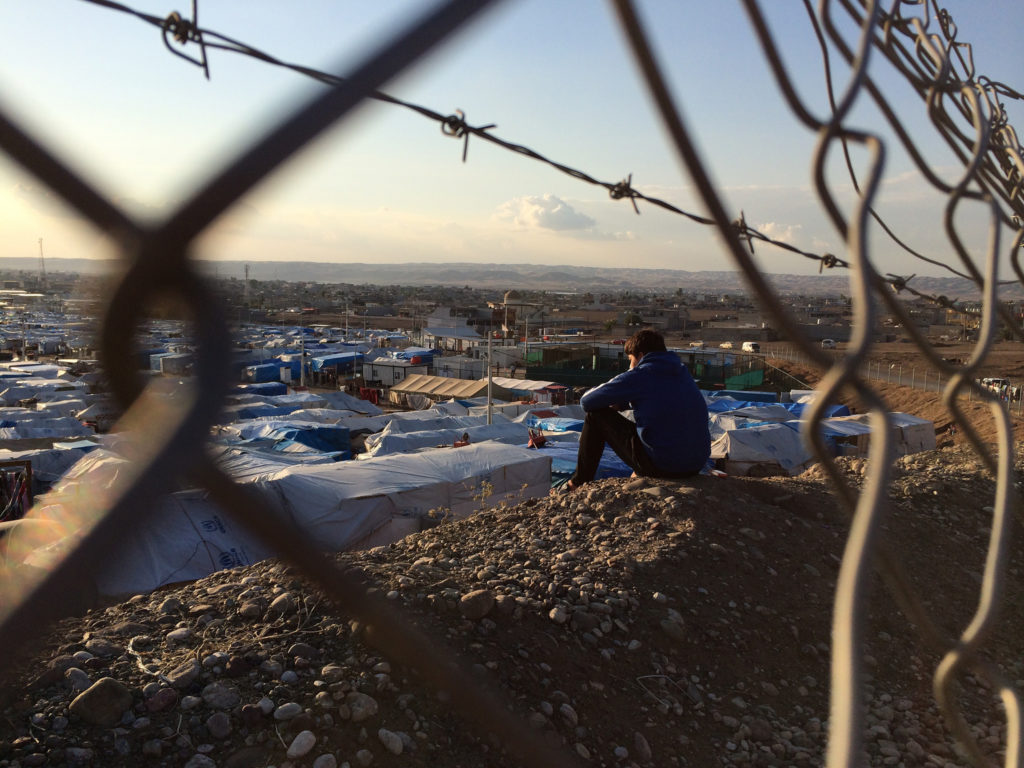
By publishing Hospitality and Islam: Welcoming in God’s Name, the University of Edinburgh theologian Mona Siddiqui has made available a rich resource for thinking about hospitality from within the Islamic tradition. Moreover, using a comparative framework, the book connects her skillful readings of Islamic texts to the Jewish and Christian traditions, underlining important congruencies and contentions. In many ways, the book itself is premised on a rhetoric of hospitality. As she puts it in the interview, “It’s not really a social-political comment; it’s more an invitation to think about the various concepts around hospitality.” In the concluding paragraph of the book, Siddiqui writes, “The stranger and the traveller [sic] are still there in the form of refugees and migrants, except now they are identified through the political language of our age” (242-3). Hospitality and Islam aims to offer a new theological resource to these debates without claiming an explicitly political position.
The interview has mitigated some of that bet-hedging, clarifying at least two arguments that promise to bridge theology and policy, without demonstrating how exactly to build that bridge or proving its necessity. The first argument is that hospitality is not meant to be easy and immediately beneficial to the host, but it is “a sacred duty.” As Siddiqui notes in the introduction to her book, this is neither an entirely new assertion nor one that is immediately practically applicable (7). Second is that the guest must “behave” in a manner becoming of the guest/host relationship. This is where Siddiqui pivots outward from Al Ghazali’s prescriptions about the guest/host relationship, gesturing from the micro-level towards the macro, from adab literature on “manners and virtuous behavior” (34) to issues of “integration” within so-called host societies. This is also where the how and why questions become inescapable, at the risk of making us pesky guests of her generous scholarship.
Consider her use of the language of reciprocity, matching rights with responsibilities: “Well, if you go to visit a country, or if you become accepted by a country as a refugee or through asylum, there are obligations as well as to how you integrate into that society, because the host has done their bit in welcoming you.” It is troubling to think of tethering universal human rights to civic responsibilities to specific nation-states or, worse yet, to assimilation to imagined communities through such moralizing rhetoric. Of course, the international system of asylum applications, the criminal justice system, and whatever remains of the beleaguered welfare state all already operate in a similar logic, demanding that the needy demonstrate that they are “deserving.” The compensatory benefits of adding a further religious dimension to moral narratives of benevolent “hosts” under the threat of unscrupulous “guests” are not clear. Will calling hospitality a “sacred duty” and urging societies to shoulder its burdens “in the name of God” make up for the dangers of delineating duties for those brutalized by the same systems that have made the “hosts” at home in capitalist modernity? Or does it merely replicate and update Rudyard Kipling’s “White Man’s Burden”: “No tawdry rule of kings, But toil of serf and sweeper, The tale of common things.” Except this time, within this new muscular, postcolonial hospitality, the erstwhile settler gets to play gracious host.

All this brings two further questions. First, and perhaps the most obvious: how useful can “hospitality” be as a concept with which to think through contemporary crises of immigration and statelessness? Here the answer is complicated not just by the gap between the logic of “the moral person” and the logic of “the legal person” as Siddiqui underlines in the book (7), but also by the historical purchases of “home-making,” the right of return, and what Anzaldúa has called the “fear of going home” in the postcolonial world (Anzaldúa, 42; see also Stoler; Kaplan; Le Espiritu). Given the extensive transnational feminist literature on the imbrications of the imperial with the domestic, the host/guest and host/stranger relationships and the very concept of home must be deeply historicized and problematized before they can operate as more than mere metaphors naturalizing global inequality.
The second, and perhaps more interesting, question relates to the impulse in the contemporary Western milieu that has made scholars mine the concept of hospitality in this way. Siddiqui, after all, is offering resources in part as a response to the proliferation of discourses on “hospitality” and “tolerance” in Europe during the most recent refugee crisis. Perhaps the rhetorical operations performed around such concepts with pre-modern, sacred roots and echoes tell us about Europe’s own identity crises as “the empire comes home” (Webster). At the very least, these discourses mark a panic regarding the perceived and real failures of the “secular” language of human rights, the rule of international law, and the system of nation-states—failures that are hardly news to the average denizen of the so-called “developing world.” This then is a story of contending modernities indeed: the new scholarly life of “hospitality” is a way station on the search for “pre-modern” knowledges that must be made to serve the present. Siddiqui’s offering from within the Islamic tradition is gracious indeed. What will the intellectual wayfarers do with it?

